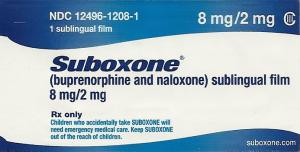The campaign ads start rolling out in Maine and Massachusetts, legal pot sales keep getting higher, the DEA cuts quotas for prescription opioid manufacturing, and more.

Legal Pot Sales Keep Going Up, Up, Up. This year is on track to be another record-setter when it comes to legal marijuana sales. A new report from the financial services company Convergex finds that sales growth at legal pot shops in Colorado, Oregon, and Washington was "impressive." Through July, Colorado has already done $458.7 million in revenues, while Washington has come in at $415.8 million through August. The Colorado figure is only 20% below the total for all of 2015, while the Washington figure already exceeds sales for all of last year. Oregon dispensaries reported $42.4 million in retail sales in June and July.
New England Legalization Initiatives Launch First TV Ads. The Question 1 campaign in Maine and the Question 4 campaign in Massachusetts both rolled out their first television ads Monday. The Massachusetts ads feature a former Boston police officer who is now a criminal justice professor, while the Maine ad also features a former law enforcement official, former Cumberland County Sheriff Mark Dion.
Heroin and Prescription Opioids
DEA Reduces Amount of Opioid Controlled Substances. The DEA announced Tuesday that it is reducing quotas for the amount of Schedule II opiates and opioid medications that can be produced in the US next year by 25% or more. DEA said it is responding to decreased demand for these substances, based on reduced prescribing of them. The quota has been cut by 25% for oxycodone, hydrocodone, fentanyl, hydromorphone, morphine, and other such medications and a whopping 66% for hydrocodone.
Thirty-Five States and DC Sue Suboxone Maker Over Price Gouging. Illinois is among the 35 states and the District of Columbia that have filed a lawsuit against the drugmaker Indivior over its maneuvers to keep a monopoly on the market for Suboxone, which is used to treat patients addicted to heroin and other opioids. The lawsuit charges that Indivior changed Suboxone from a tablet to a dissolving film only in order to get a new patent that would protect it from competition and allow it to charge exorbitant prices. The company has made over a billion dollars in annual sales every year since 2009, when the original patent was set to expire. "These companies rigged a system to ensure they profited at the expense of the people who depended on this drug to treat and recover from addiction," Illinois Attorney General Lisa Madigan said in a statement.
This work by StoptheDrugWar.org is licensed under Creative Commons Attribution-ShareAlike 4.0 International
Add new comment